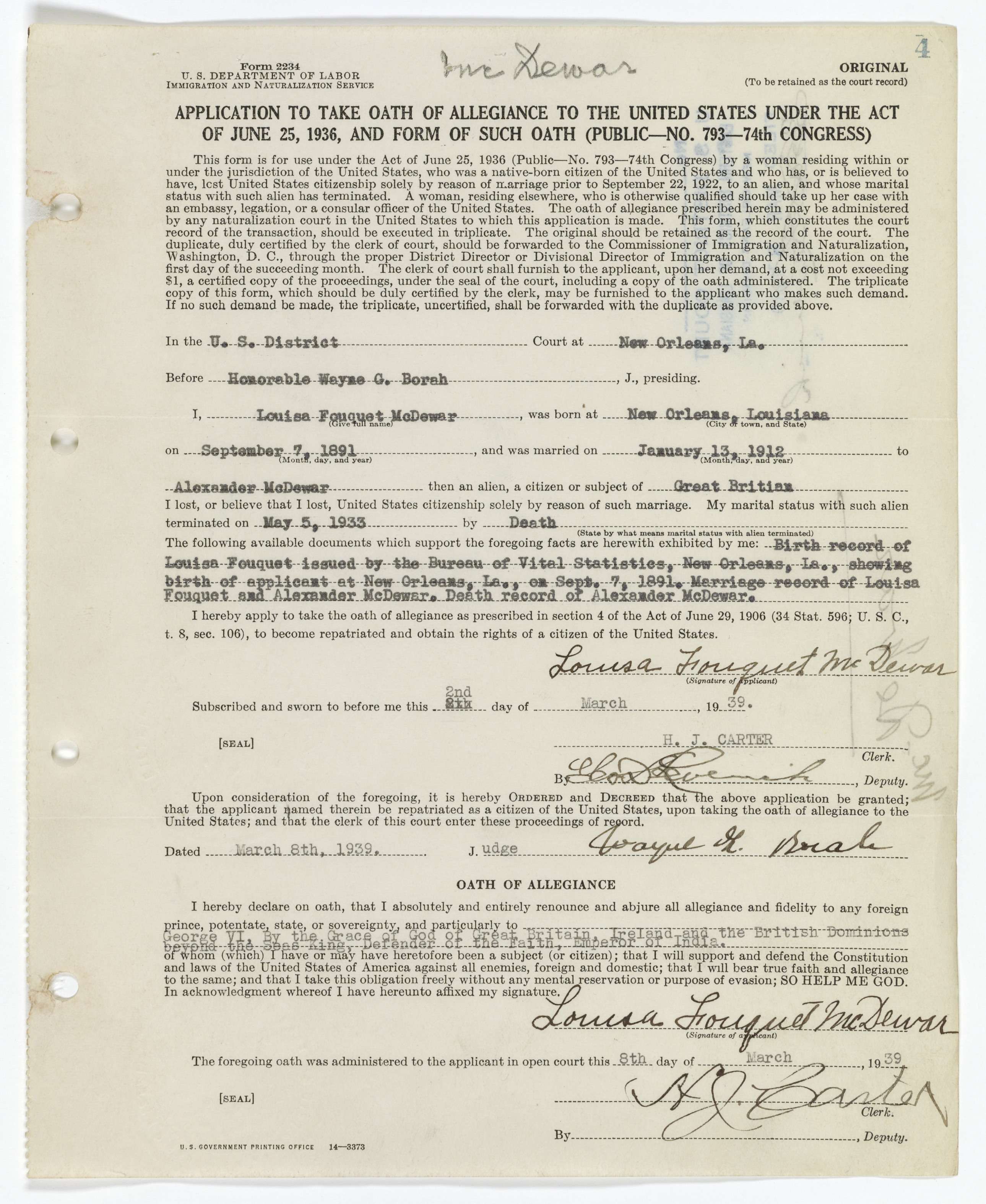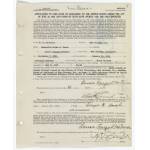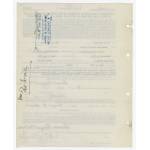Repatriation Oath of Louisa Fouquet McDewar
3/8/1939
Add to Favorites:
Add all page(s) of this document to activity:

Add only page 1 to activity:
Add only page 2 to activity:
Louisa Fouquet McDewar took this oath of allegiance to the United States to become repatriated. Though born in Louisiana, she had lost her citizenship by marrying Alexander McDewar, who was a citizen of Great Britain. She filled out this form to regain her rights as a U.S. citizen after her husband died and she was no longer married.
This form states that it is to be used by a "woman residing within or under the jurisdiction of the United States, who was a native-born citizen of the United States and who [had]...lost United States citizenship solely by reason of marriage prior to September 22, 1922...to an alien."
From 1907 to 1922, American women lost their American citizenship by marrying non-Americans. The Expatriation Act of March 2, 1907, said "Any American woman who marries a foreigner shall take the nationality of her husband." The Cable Act of September 22, 1922, repealed the 1907 Expatriation Act and prohibited expatriation of a U.S. citizen by any marriage contracted after that date to an alien eligible for citizenship.
Hundreds of repatriation oaths like this one were submitted to courts across the country after the Cable Act was passed. If a woman had lost her citizenship by marriage between 1907 and 1922 and the marriage had since terminated through death or divorce, she could file an application and resume citizenship by taking an Oath of Allegiance. An Act of July 2, 1940, would provide that all women who had lost citizenship by marriage could repatriate regardless of their marital status.
This form states that it is to be used by a "woman residing within or under the jurisdiction of the United States, who was a native-born citizen of the United States and who [had]...lost United States citizenship solely by reason of marriage prior to September 22, 1922...to an alien."
From 1907 to 1922, American women lost their American citizenship by marrying non-Americans. The Expatriation Act of March 2, 1907, said "Any American woman who marries a foreigner shall take the nationality of her husband." The Cable Act of September 22, 1922, repealed the 1907 Expatriation Act and prohibited expatriation of a U.S. citizen by any marriage contracted after that date to an alien eligible for citizenship.
Hundreds of repatriation oaths like this one were submitted to courts across the country after the Cable Act was passed. If a woman had lost her citizenship by marriage between 1907 and 1922 and the marriage had since terminated through death or divorce, she could file an application and resume citizenship by taking an Oath of Allegiance. An Act of July 2, 1940, would provide that all women who had lost citizenship by marriage could repatriate regardless of their marital status.
This primary source comes from the Records of District Courts of the United States.
Full Citation: Repatriation Oath of Louisa Fouquet McDewar; 3/8/1939; Repatriation Oaths of Allegiance, 1940 - 1970; Records of District Courts of the United States, Record Group 21; National Archives at Fort Worth, Fort Worth, TX. [Online Version, https://docsteach.org/documents/document/repatriation-louisa-fouquet-mcdewar, April 26, 2024]Rights: Public Domain, Free of Known Copyright Restrictions. Learn more on our privacy and legal page.





